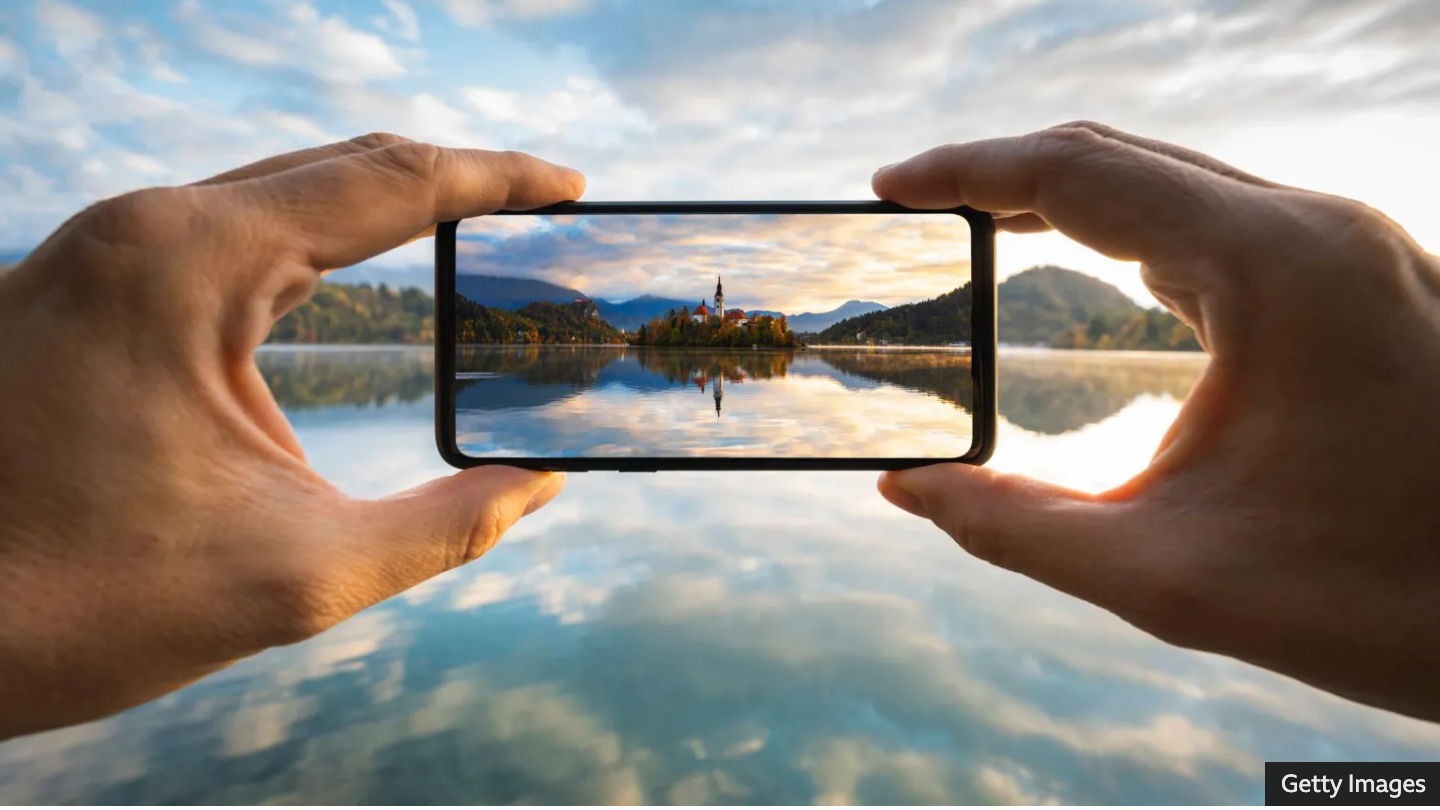Mobile phone expert Ben Wood, from research firm CCS Insight, said that while AI features aim to make digital life easier, they’re not necessarily on top of everybody’s wish list.
“I think that most people now know what they want from a phone, with one of the most important things being the camera,” he says.
The phone designers also know this. The tech spec of every new handset camera is usually an improvement on the previous generation. But even this isn’t a guaranteed sales generator any more.
“What is definitely happening is that people are holding on to their phones for longer. Back in 2013 there were 30 million phones sold annually,” adds Mr Wood. “This year it will be around 13.5 million.”
There is of course an ongoing cost of living crisis affecting people’s spending decisions. And there’s also an environmental price tag attached to every handset, all of which contain rare elements and precious metals.
In addition, there is a growing trend, especially among parents and young people, to try to step away from smartphones entirely.
A number of UK schools are reviewing their smartphone policies, and a few have already opted for an outright ban. Pupils starting at the public school Eton this term were issued feature phones (sometimes, rather unpopularly known as dumb phones), and I have heard of several other institutions, both in the private and state sectors, which are considering following suit.
The mobile phone network EE recommends that children below the age of 11 shouldn’t have smartphones at all.
Nova East leads the north and west London branch of the Smartphone Free Childhood campaign, which urges parents and schools to collaborate to delay the age at which children are given the devices.
“We are not anti-tech, we are just pro-childhood,” she says. “We would like to see tech companies develop a child friendly phone, offering only essential features such as calls, messaging, music, and maps, without any additional functionalities.”
Dr Sasha Luccioni, a research scientist at the AI firm Hugging Face, says that so far, this message does not seem to be getting through.
“There’s increased talk of ‘digital sobriety’ in the way we build and use technology – but it sounds like smartphone designers are going in the exact opposite direction,” she says.
I put this to Apple, Google and Samsung. The latter said: “Samsung users can choose how they use their Galaxy phones that best fits their needs. For example, digital wellbeing features allow users to select what features they use, when they use them and for how long, such as setting a screen time limit on specific apps they want to restrict.”
One company that is listening to the growing calls for reduced phone functionality is the Finnish firm HMD – which still makes basic Nokia handsets. Last month it launched a Barbie-themed phone in collaboration with toymaker Mattel, and I tried it out. The two words I would use to describe it are: functional. And pink.
Like most feature phones, it has no apps, no app store, no selfie camera, and only one game. If you want to listen to music there’s an FM radio.
CCS Insight forecasts that around 400,000 feature phones are likely to be sold in the UK this year – nowhere near enough to knock the iPhone off the top of the list of the world’s most-sold handsets any time soon, but not a bad market space.
I just checked my own screentime over the past seven days, and I averaged around five hours per day, This is admittedly a sobering statistic – but it wasn’t all doomscrolling (honest). My phone is a work tool, it’s also what I use for banking, shopping, directions, health tracking and keeping track of family plans, as well as, yes, gaming and social media.
“I think the thing we always forget is that there’s a tremendous amount of benefits from using smartphones,” says Pete Etchells, professor of psychology and science communication at Bath Spa university, who has written extensively about the issue of screen time.
“We tend to focus a lot more on the negatives. It’s always worth bearing in mind that these are technologies of convenience. They help us. There are some good aspects to them as well.”
https://www.bbc.com/
The post What’s the point of buying the latest smartphone? appeared first on Ghanaian Times.
